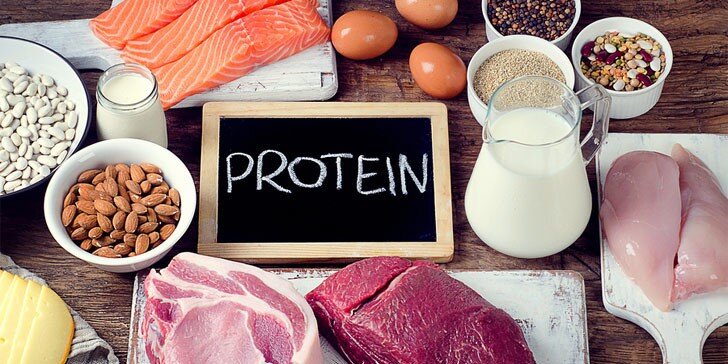Table of Contents

Did you know that protein plays a crucial role in the success of a keto diet? Determining the right amount of protein for your body is key to achieving ketosis and reaching your fitness goals. In this article, we’ll explore how much protein you should have on a keto diet and provide practical tips for calculating your protein macros. By understanding the importance of protein and adjusting your intake accordingly, you can optimize your journey towards a healthier, fitter you.
Determining Your Protein Needs on a Keto Diet
You should calculate your protein needs based on your individual factors and goals when following a keto diet. Protein is an essential macronutrient that plays a crucial role in maintaining and building muscle mass, supporting immune function, and facilitating various biochemical processes in the body. On a keto diet, it’s important to strike a balance between consuming enough protein to support these functions while still maintaining a state of ketosis.
The amount of protein you should have on a keto diet can vary depending on factors such as your age, sex, activity level, and overall health goals. However, a general recommendation for protein intake on a keto diet is around 0.6-1 gram of protein per pound of lean body mass per day. To calculate your protein needs, you can start by determining your lean body mass, which is your body weight minus your body fat. For example, if you weigh 150 pounds and have 20% body fat, your lean body mass would be 120 pounds.
Once you have your lean body mass, you can multiply it by the recommended range of protein intake to determine the amount of protein you should aim for on a daily basis. For instance, if your lean body mass is 120 pounds, you would aim for approximately 72-120 grams of protein per day. This range allows for individual variation and provides enough protein to support your body’s needs while still promoting ketosis.
It’s worth noting that consuming too much protein on a keto diet can potentially kick you out of ketosis, as excess protein can be converted into glucose through a process called gluconeogenesis. Therefore, it’s important to find the right balance and monitor your protein intake to ensure it aligns with your keto goals.
Protein Recommendations for a Successful Keto Journey
To ensure a successful keto journey, it is important to follow protein recommendations that align with your individual needs and goals. Protein is an essential macronutrient that plays a crucial role in building and repairing tissues, supporting immune function, and maintaining muscle mass. On a keto diet, the recommended amount of protein intake varies depending on factors such as your activity level, age, sex, and overall health.
For most people following a ketogenic diet, it is generally recommended to consume between 0.6 and 1 gram of protein per pound of lean body mass. This means that if you have 150 pounds of lean body mass, you should aim to consume between 90 and 150 grams of protein per day. However, it is important to note that individual protein needs may vary, and it is always best to consult with a healthcare professional or registered dietitian to determine the optimal protein intake for your specific needs.
Consuming an adequate amount of protein on a keto diet is essential to prevent muscle loss and promote satiety. Additionally, it is important to choose high-quality sources of protein such as lean meats, poultry, fish, eggs, and dairy products. These sources not only provide essential amino acids but also contain important nutrients like vitamins and minerals.
The Role of Protein in Ketosis
Ideally, it is recommended to consume an adequate amount of protein on a keto diet to support your body’s transition into ketosis. Protein plays a crucial role in this metabolic state as it helps maintain muscle mass, supports cell repair, and aids in various biochemical processes. However, it is important to strike the right balance when it comes to protein intake on a keto diet.
To determine how much protein you should eat on a keto diet, it is generally advised to consume between 0.6-1.0 grams of protein per pound of lean body mass. This means that if you have 150 pounds of lean body mass, your protein intake should fall within the range of 90-150 grams per day. It is important to note that this is a general guideline and individual protein needs may vary based on factors such as activity level, age, and gender.
Consuming too little protein can lead to muscle loss and hinder your progress on a keto diet, while consuming too much protein can potentially kick you out of ketosis as excess protein can be converted into glucose through a process called gluconeogenesis. Therefore, it is essential to find the right balance and listen to your body’s needs.
Finding the Ideal Protein Intake for Ketosis
It’s important to find the ideal protein intake for ketosis that works best for your body and supports your goals on a keto diet. When it comes to determining how much protein you need on a keto diet, there are a few factors to consider.
Firstly, it’s essential to understand that protein is a crucial macronutrient that plays a vital role in various bodily functions. It helps with muscle growth and repair, supports immune function, and contributes to the production of enzymes and hormones. However, consuming too much protein can interfere with ketosis, as excess protein can be converted into glucose through a process called gluconeogenesis.
The general recommendation for protein intake on a keto diet is around 0.6-0.8 grams of protein per pound of lean body mass. To calculate your lean body mass, subtract your body fat percentage from your total weight. For example, if you weigh 150 pounds and have 20% body fat, your lean body mass would be 120 pounds. In this case, your protein intake would range from 72 to 96 grams per day.
It’s important to note that individual protein needs may vary based on factors such as activity level, age, and overall health. If you’re highly active or engage in intense exercise, you may need to increase your protein intake slightly to support muscle recovery and growth.
Calculating Your Protein Macros for a Keto Diet
You can easily calculate your protein macros for a keto diet by following a simple formula. The first step is to determine your daily caloric intake. This can be done by multiplying your body weight in pounds by a factor of 10-12, depending on your activity level. For example, if you weigh 150 pounds and are moderately active, you would multiply 150 by 12 to get 1800 calories.
Next, you need to determine the percentage of calories that should come from protein. On a keto diet, it is generally recommended to consume 20-25% of your calories from protein. To calculate the grams of protein you should aim for, multiply your daily caloric intake by the percentage of calories from protein, and then divide by 4 (since there are 4 calories per gram of protein). For example, if you are consuming 1800 calories per day and want 20% of those calories to come from protein, you would multiply 1800 by 0.2 and then divide by 4 to get 90 grams of protein.
It’s important to note that these calculations are just general guidelines. Individual protein needs may vary depending on factors such as age, sex, muscle mass, and activity level. It is always a good idea to consult with a healthcare professional or registered dietitian to determine the optimal protein macros for your specific needs.
Adjusting Protein Intake for Different Fitness Goals on Keto
If you want to achieve different fitness goals on a keto diet, such as building muscle or losing weight, you can adjust your protein intake accordingly. Protein is an essential macronutrient that plays a crucial role in muscle growth and repair. For those looking to build muscle, it is recommended to consume around 1.2-2.0 grams of protein per kilogram of body weight. This higher protein intake helps support muscle protein synthesis and aids in recovery after intense workouts.
On the other hand, if your goal is to lose weight while on a keto diet, you may want to slightly reduce your protein intake. This is because excessive protein consumption can potentially hinder the process of ketosis, where your body burns fat for fuel. However, it’s important not to drastically reduce your protein intake, as it is still necessary for preserving muscle mass and keeping you feeling full.
To strike the right balance, aim for a protein intake of around 0.8-1.2 grams per kilogram of body weight if you’re trying to lose weight on a keto diet. This will provide your body with enough protein to maintain muscle mass while still promoting fat loss. It’s also important to note that individual protein needs may vary based on factors such as activity level and body composition.
Protein Timing and Distribution on a Ketogenic Diet
When following a ketogenic diet, it is important to consider protein timing and distribution to optimize your results. Timing your protein intake throughout the day can have a significant impact on muscle protein synthesis and overall body composition. To maximize muscle protein synthesis, it is recommended to evenly distribute your protein intake across your meals. Consuming 20-30 grams of protein per meal is a good guideline to follow. This ensures that your body has a steady supply of amino acids to support muscle growth and repair.
In addition to timing, the distribution of your protein intake is also crucial. It is recommended to spread your protein intake evenly throughout the day rather than consuming most of it in one or two meals. This helps to maintain a positive nitrogen balance and support muscle protein synthesis throughout the day.
Including a source of high-quality protein at each meal is essential on a ketogenic diet. Foods such as lean meats, poultry, fish, eggs, and dairy products are excellent sources of protein. Additionally, incorporating plant-based protein sources like tofu, tempeh, and legumes can provide a variety of amino acids.
Avoiding Common Pitfalls: Protein Overconsumption on Keto
To prevent protein overconsumption on a keto diet, be mindful of your portion sizes and choose lean protein sources. While protein is an essential macronutrient on a ketogenic diet, consuming too much can hinder your progress. When it comes to portion sizes, it’s important to strike a balance. Consuming too little protein can lead to muscle loss, while consuming too much can kick you out of ketosis and hinder fat burning.
To avoid overconsuming protein, start by calculating your daily protein needs based on your body weight and activity level. A general guideline is to consume 0.6 to 1 gram of protein per pound of lean body mass. Remember that lean protein sources are ideal for a keto diet because they contain less fat and fewer calories. Opt for sources like chicken breast, turkey, fish, lean cuts of beef, and tofu.
Additionally, be cautious of hidden sources of protein in foods that you might not expect. Some processed foods, such as protein bars and shakes, can be high in protein and may contribute to overconsumption. It’s essential to read labels and choose products that fit within your protein goals.

